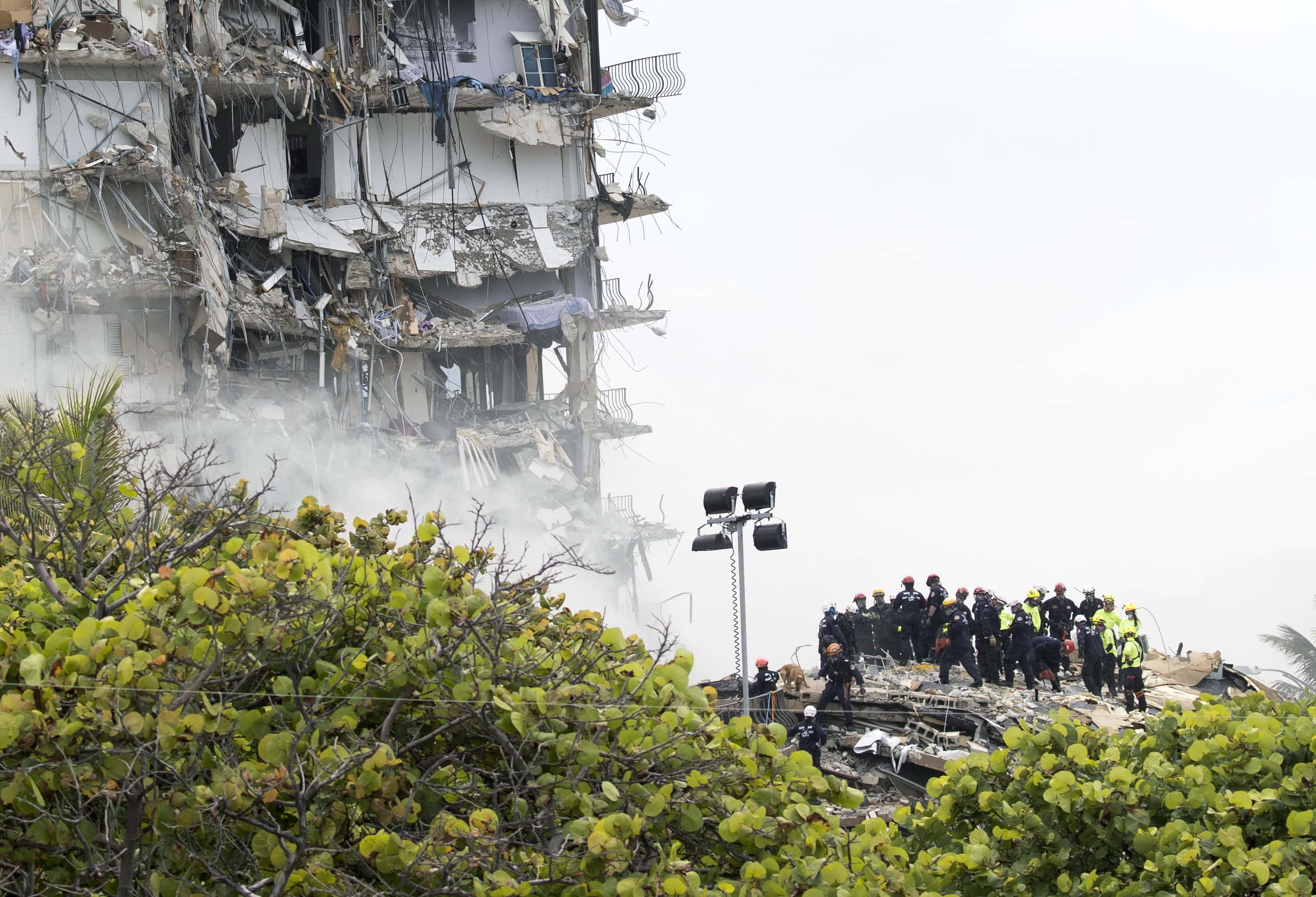Surfside building collapse: Developers bribed officials $200K to get permits, report

After the June 24 collapse of the Miami condo in Surfside, Florida, reports are alleging fraud on part of developers of the building, revealing they once paid off local officials to get permits for the site. The building called Champlain Towers South partially collapsed with 55 of its 70 percent occupied 136 total units. The building was built in 1981, along with its sister towers Champlain Tower North, and they were followed by Champlain Towers East in 1985.
In the wake of the tragedy that has seen over 700 missing person's report, and several residents of the sister towers evacuating, it had been revealed that papers for the building's state-mandated inspection due every 40 years were never provided by the owners. It was also revealed that a consulting firm hired by the building's association for repairs in 2018 cited "major structural damage" in the condos. And now, the Washington Post reports that the building was in due of $15 million in repairs just to qualify the code required for buildings 40 years or older.
RELATED ARTICLES
Horrifying video showing moment Surfside condo building collapses goes viral
Surfside building collapse: Who are the owners of Champlain Towers?
Building rivals accuse Champlain Towers South's developing partners of receiving preferential treatment in permit proceedings. These partners had contributed to the campaigns of at least two council members, their rivals allege, adding that when the allegations resurfaced, they had demanded these donations back.
The crucial members in the building and designing of the tower are all dead, the publication reveals. One of the developers was Nathan Reiber who had been charged with tax evasion and cited for legal misconduct, according to the report. Accused of skimming cash from apartment buildings owned by him and his partners, Reiber had fled from Canada to Florida where he and his partners were unable to begin construction of condo buildings due to a faulty sewers moratorium. But they agreed to pay half of the $400,000 tab for the sewer repairs to get the green light on their project, while their furious rivals had to stay stalled due to the prohibition.

Also allegedly involved in the building's construction were consulting engineers Brieterman Jurado & Associates and architects William M Friedman & Associates. Brieterman died in the '90s, and Jurado told the outlet that his firm handled electrical and mechanical work, while the other was in charge of structural work. A former vice president at Friedman's firm told the outlet: "It was his (Friedman) project, not mine. When I joined the company the building was already constructed. I don’t know anything about it.”
Engineer Frank Morabito, who was part of the 2018 team hired for repairs, said a “main issue” was the faulty drainage of a pool deck atop a parking garage. “Failure to replace waterproofing in the near future will cause the extent of the concrete deterioration to expand exponentially,” the report said. It was Morabito who estimated the due repairs would have cost $15 million; he also revealed that the association did not respond for 18 months after the citation. Finally, as the first phase of the repair work began with the roof, the building came tearing down at 1.30 am on the fateful day within a matter of minutes, leaving behind a harrowing sight that has since been compared to the destruction caused by 9/11.










